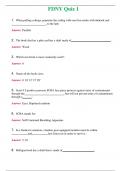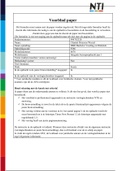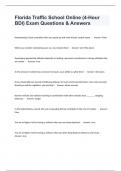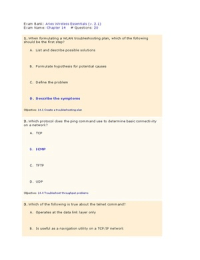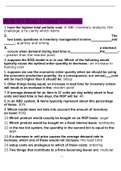Age inequalities
* How should we look at age?
* Chronological, 0-18 18-35 36-50 50-65
* Life course, childhood, youth, young adulthood, middle age and old age
* Laslett 1991 life approach, first age = socialisation, second age = work and
childrearing, third age = independence
* Could we add a 4th stage?
* Milne, the elderly are a diverse group. The grey pound of the economically active
elderly
* Pilcher, divide into 3 65-74 is young old 75-84 is middle aged old and 85 plus is
old old
* Weber, life chances vary for all the different ages including the old age
distinctions
Age and work
* Minimum wage varies with age and rises as you get older. This may mean young
people are seen as cheap labour
* Elderly often suffer discrimination and are not seen as fit to work. Too old to
employ. 38% of all discrimination cases are related to age.
* State pension age is rising and is set to rise again from 67 to 68 for those 55
or younger it is now illegal to force someone to retire unless the job can justify
it
* We live with a demographic time bomb as the population is ageing. In 2021 over ⅓
of the population are 55 and many people elected to retire early or leave the
workplace as a result of covid
* Why will this be a problem for employers and the state?
* More demands for health care, social care, pensions
* They won't be working so they won't be paying tax
* Social care is on its knees, so is the NHS
* Many of the over 50s have left the workplace since COVID
Age and income, wealth and poverty
* Child poverty, ⅓ of all children in the UK live in poverty. ⅔ of these live in a
family that has at least one working adult
* Unable to afford school materials, material deprivation. Impacts on grades, poor
diet and housing leads to illness
* CPAG (child poverty action group) argue that this will only get worse not even
considering the cost of living crisis
* All of the top 10 areas with the most child poverty are in london, birmingham and
manchester
* More part time work, less well paid work or no work for the elderly. No chance to
supplement
* Fuel poverty, if you spend more than a tenth of your income on fuel bills. Eating
vs heating. Cost of living crisis. Fixed income, no chance of pay rise, overtime,
second jobs
* Stats show elderly are not the poorest in society, those who are working and
single parents are most likely to be the poorest in society
* Age is not a good predictor or factor to consider for social mobility as it is
not as large a factor as class, wealth, gender, religion and nationality
* Hepworth and featherstone 1990 argue that terms like old and young need unpicking
and are far too simplistic
* Marsh and keating 2006 argue that culture is an important factor, some value old
age more than others. Some see childhood differently
* There are too many other factors to take into consideration and so it is more
complex
, Age and gender
* Younger females suffer more inequality. Female genital mutilation, femicide,
rape, sexual violence, forced marriage and all other ways self esteem and self
identity can be harmed
* In some countries females are not permitted to be educated past a certain age or
find employment out of the home. Malala has fought for education for all in
pakistan
* Young women in some cultures are not allowed out without a chaperone
* So culture and nationality have an impact
* In the UK glass ceiling, pay gap and fear of violence
* Elderly females are more likely to be worse off than elderly males. They often
have lower pensions than men. Men earn more in their career so they have a bigger
pension, they get promoted more so earn more
* Although they live longer they often spend more time ill than men so their
quantity of life expectancy is longer and this is not a good thing. Women spend
more of their old age ill or in pain
Age around the world
* The saud family in Saudi Arabia sees nearly all of the power given to men in
their 80s. When king abdullah died at 90 power passed to a 79 year old relative
* Kagan found elderly people were very active in their columbian village in their
80s. The elderly are respected and advice is sought
* In nomadic societies the elderly are seen as a burden. Geronticide is common.
They travel a lot and the older people cannot cope
* In the UK gentleman 2009 found care homes an unpleasant experience as the
monotony and lack of visitors makes it tedious
* Youth also varies around the world. The IK tribe makes their children independent
from the age of three. In the UK children cannot be prosecuted under the law until
they are 10
* Marriage can be very young in some cultures
* Age of being to work
* Child soldiers in africa
Age and the digital divide
* What is the digital divide
* How is it impacted by age
* How does it harm the elderly
* How does it harm the young
* Dowd, strangers in their own land. The young are often cut off from reality
* Silvers surfers cant generalise
Functionalists
* The old and the young face inequality as they lack the correct skills that
society wants
* New right would agree that the young should not be paid as much as they have
fewer skills and less experience, but also see them as lazy and work shy
* Parsons argues that society is like a body and that it needs to run smoothly for
all areas to work. Youth can threaten the smooth running as they are more
rebellious
* Eisenstadt supports parsons and states that youth is a time for people to learn
their adult roles. Parsons states youth is like a bridge between youth and
adulthood. This is why the behaviour seems more dysfunctional and rebellious than
it really is. They may experiment to try behaviours out. They will learn lessons
from this to take forward. They may be rude to teacher and get a detention, meaning
they have learnt and will not try this with a boss
* The elderly will have to change their role and function in society as they become



